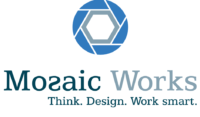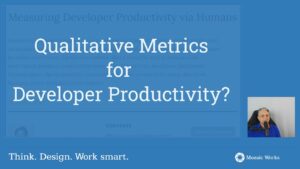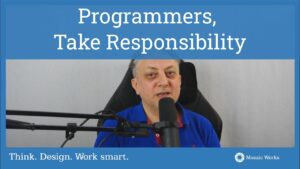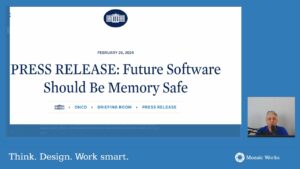(Originally published on flaviusstef.wordpress.com)
This week I attended the Optional Conference organized in Budapest. Below you can find my notes.
My talk on the Agile Mindset
I gave a talk at the conference comparing the agile and the traditional mindset. It’s the stuff I’ve written about in a paper earlier this week. Here’s the presentation from the conference.
Notes from other talks
Here are some notes I jotted down during the talks:
- Budgets don’t work because they force two different numbers into a single one: the estimate and the target budget.
- It’s hard to manage people in Generation Y, because their parents made sure they have everything. As such, they can’t be threatened or bribed. Instead, they must be inspired.
- There are two types of stress and we want to avoid the second. When we start adding pressure, at first eustress kicks in, but with enough additional pressure we become distressed. Eustress is good, it helps achieve results. Distress is not good, because it triggers the limbic system (our primitive brain). Agile helps because it generates mainly eustress
- If you want to get into a state of flow, you need the right balance between the difficulty of the problem you are solving and you own skills. This model of flow illustrates the various combinations between difficulty and skill.
- Ericsson is doing agile in a 112.000 persons organization. The R&D department is more advanced in terms of adoption, and they have a massive 24.000 people involved. The program manager for a product being developed by 450 people told the story of trusting too much in incremental architecture and being bitten by it when they had to make significant investments to switch from a simpler database to a more scalable one.
- Deutsche Telekom is another massive company who is transforming to agile. In one city, they have 100 teams who are organized using agile concepts: long lived, cross-functional, collocated. To ensure a constant flow of ideas, periodically one person is rotated between the teams. The team members rate their managers on how well they embody the company and agile principles. Teams have veto rights on new hires.
- Rational arguments are not that useful for convincing people. What works better is storytelling.
- Boris Gloger had the closing keynote. He advocated for an agile management style based on strong leadership skills. He emphasized four: clarify the purpose, give positive feedback, listen and use appreciative inquiry.
- I need to learn more about holacracy, human system dynamics, radical management and appreciative inquiry.
Agile and HR
More and more people are asking me about how to “marry” agile and HR practices. The performance review is one of the most pressing concerns for HR professionals, and they want to align the practice to fit with agile principles.
Jurgen Appelo advocated during dinner for dropping the practice altogether, but my feeling during the Open Space was that most managers were afraid of this perspective (I ran a session on this exact topic). Boris Gloger gave me an interesting idea to chew on when, after discussing various alternatives, he said “So, are we thinking that the HR manager should be like a ScrumMaster for the organization?”
I’ll have to clear up my thoughts on this, but I feel that’s an interesting direction to explore.









